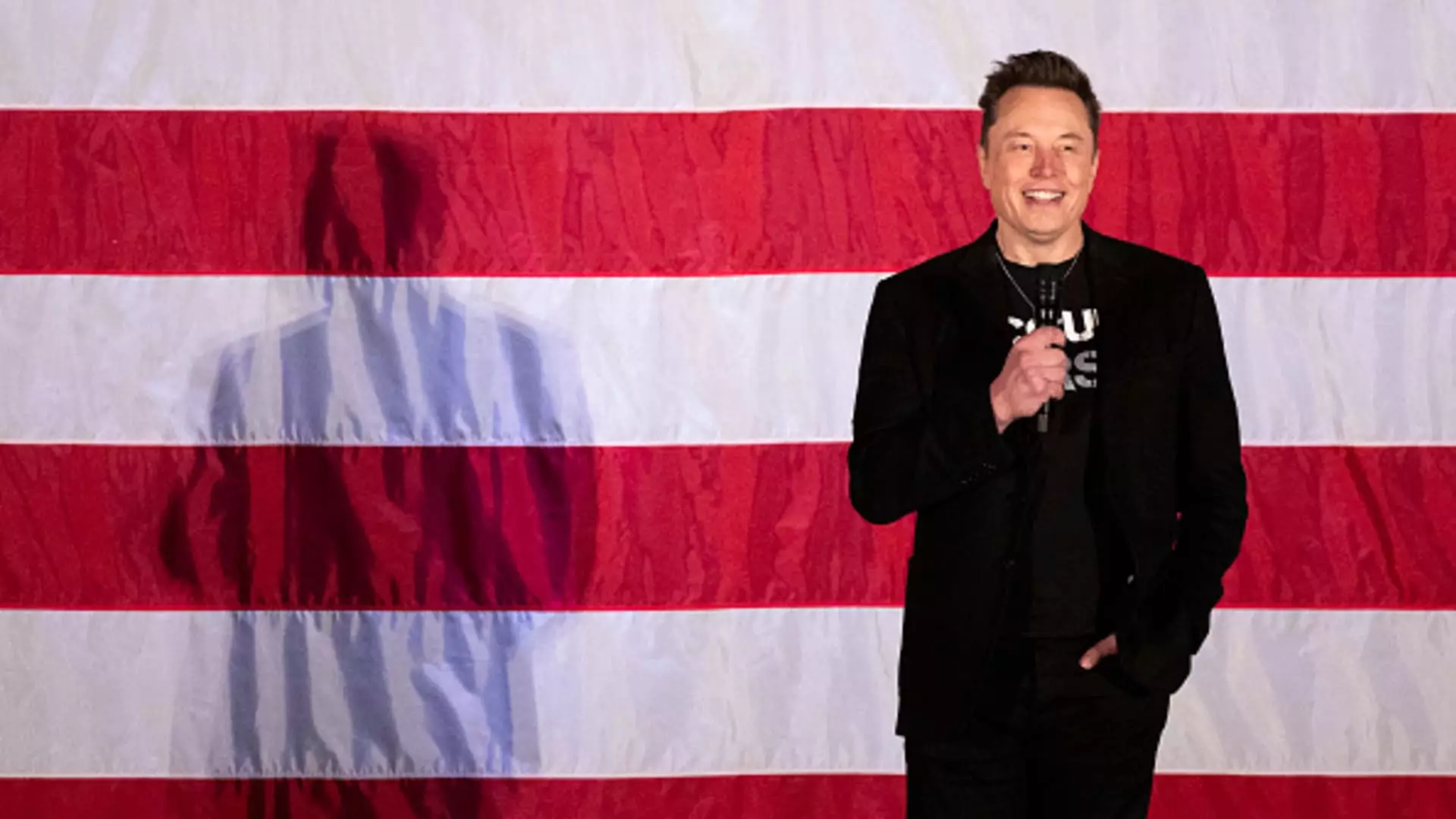The recent developments involving Elon Musk and his America PAC have ignited a firestorm of legal scrutiny in Pennsylvania. By proposing a substantial monetary incentive of $1 million tied to voter engagement in swing states, Musk has embroiled himself in accusations of running an illegal lottery aimed at swaying the electoral process. While his initiative might appear innovative at first glance, it raises significant ethical and legal questions about the intersection of money and politics, especially within the context of elections.
The Philadelphia District Attorney’s Office, led by DA Larry Krasner, has taken the noteworthy step of filing a lawsuit to thwart Musk and America PAC’s voter incentive program. Krasner’s legal action stems from allegations that this initiative violates both state lottery laws and federal election regulations. This lawsuit also highlights a larger issue regarding the integrity of the democratic process and the potential for coercive financial schemes in political campaigning.
According to Krasner’s office, Musk is encouraging eligible voters to provide personal information in exchange for a chance to win a considerable sum. The claim is that by asking voters to register with identifying details and affirm their support for the Constitution, Musk’s initiative essentially creates a lottery-like scenario. This is a serious allegation that positions the initiative as not only unethical but also a direct violation of Pennsylvania law, which stipulates stringent regulations for any lottery activities.
The legal implications of such a lottery system cannot be overstated. According to the lawsuit, Pennsylvania law mandates that all lotteries be state-supervised. By circumventing these regulations, Musk may not only face legal repercussions but also undermine public trust in voter engagement initiatives. Moreover, he has been accused of deploying misleading tactics to incentivize participation, which could further exacerbate the situation.
From an ethical standpoint, the implications of promising a grand cash prize for political engagement raise alarms about the coercive nature of such tactics. The use of monetary rewards in electoral contexts has historically been frowned upon, as it can lead to dubious motivations among voters, potentially distorting the democratic ethos upon which elections are built. Critics argue that this example exemplifies how wealth can inappropriately influence political outcomes.
In the wake of this legal tussle, reactions from political figures have been swift. President Joe Biden’s flippant remark about joining the cash giveaway underscores the absurdity perceived by some in the political landscape. His comment, while humorous, reflects a broader concern about the integrity of electoral processes and the role of billionaires in shaping political discourse. The polarizing figure of Musk, known for his propensity to challenge norms, emerges as both a disruptor and a potential threat to democratic frameworks.
Additionally, previous investigations into America PAC have revealed troubling patterns. Accusations about the group’s collection of personal data from vulnerable voters under false pretenses cast a long shadow over Musk’s intentions. Questions about the efficacy and honesty of political action committees are a growing concern, particularly as Americans become acutely aware of how data is used in modern campaigning.
Ultimately, the unfolding saga surrounding Musk and his $1 million initiative serves as a critical reminder of the need for vigilance in protecting electoral integrity. Citizens must remain aware of potential manipulative tactics that could exploit their civic participation. As the legal proceedings move forward, the outcomes may set important precedents for how political resources can or cannot be used to influence elections.
Moreover, this case reinforces the idea that the intersection of technology, wealth, and politics must be navigated delicately. As social media and other platforms evolve, the capacity for financial manipulation in politics becomes increasingly feasible. It is essential for both lawmakers and citizens to scrutinize such activities rigorously to ensure that democratic processes remain fair, transparent, and free from coercion.
In essence, the implications of this case extend far beyond the immediate legal ramifications; they highlight ongoing challenges in the modern electoral landscape that underscore the need for accountability and ethics in political engagement.

Leave a Reply